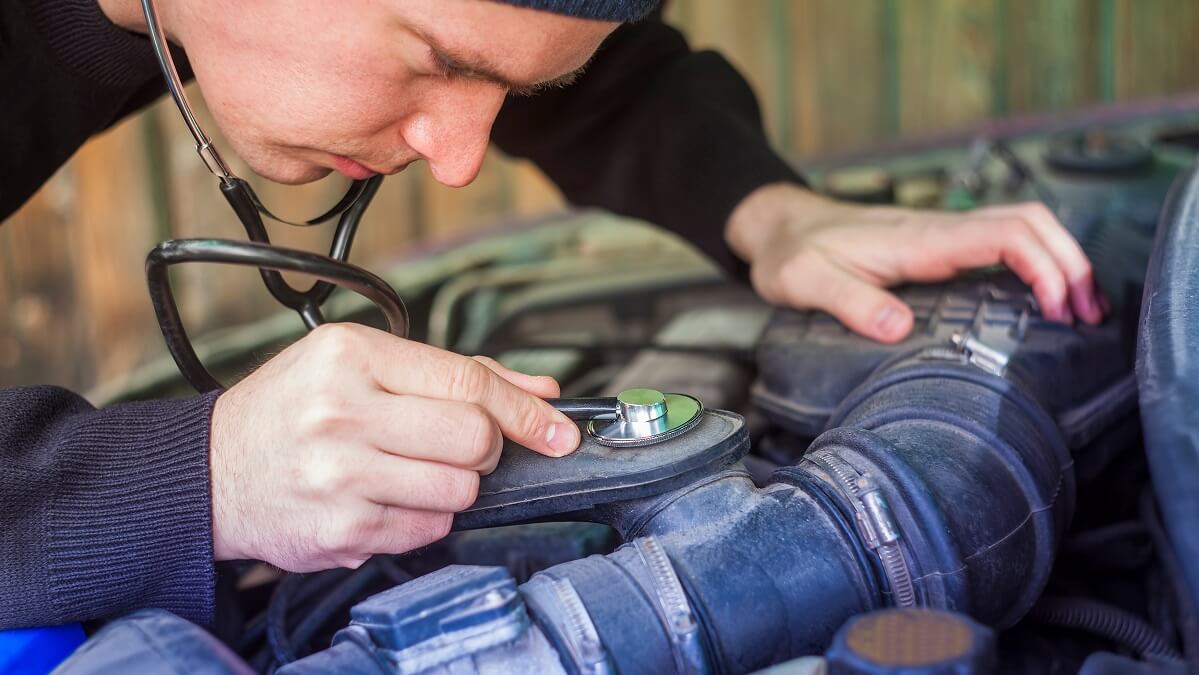You may be surprised to learn that your car is constantly talking to you. The only problem is most people don’t listen, and that can lead to some serious expenses.
Approximately 7 per cent of all car crashes are caused by some kind of vehicle failure, with tyre faults and brake issues topping the list, but there are plenty of other things that can fail, including engine, steering and suspension, all of which can also potentially cause a crash.
So, here are seven common noises to listen out for, and what they may indicate.
Humming or groaning
If there is a humming noise that increases as your speed increases, it may be a sign that your tyres are worn. The problem may not be visible because it may affect the inside of your tyres, which could be a sign that the steel belts are separating. Or it may be an issue on the sides of the tyres you can’t see. In any case, having your tyres checked is cheap insurance that all is well.
Howling
Assuming it isn’t coming from children in the back seat, this is a noise that often changes when you turn the wheel or sometimes even goes away altogether. It is most often caused by a failing front wheel bearing. The noise may also change as the weight of the car shifts during a turn.
Whining and creaking
If you hear these noises when reversing or turning, it could be a sign that a ball joint or tie rod is seizing up.
Squeaking
High pitched and constant squeaking or squealing is a warning to have your brake pads checked and, if necessary, replaced. Badly worn brake pads can damage the rotors (discs) and mean those will also need replacing, so checking brake pads regularly and replacing them before they become extremely worn makes good financial sense.
Grinding
If two pieces of metal are coming into contact with each other, they produce a grinding noise. Possible sources of such a noise are brakes, powertrain, bodywork or suspension and you need to get professional advice as soon as possible.
Hissing
Cooling systems will hiss if they aren’t properly sealed. You may hear this after you have turned off the ignition. Unattended, it will only become worse and could result in your engine overheating, with potentially disastrous results.
Clicking
Front-wheel drive cars use CV (constant velocity) joints. If you hear a clicking sound when turning, these are on the way out and need replacing.
So, listen to what your car is telling you. And have any unexplained noises checked by a qualified mechanic. It could avoid an unpleasant and expensive breakdown.
Originally published on www.seniordriveraus.com and republished here with permission.
Do you listen to your car? Is there anything Paul has missed? Why not share your tips in the comments section below?
Also read: Is your car in tip-top shape?


Possibly the most important part of any car/vehicle is the Owners Manual. I know that it sounds tedious, but please read it from cover to cover. Look at what it tells you, the driver, to do before you drive everytime, plus the regular checks (water, oil, tyre conditions and pressures) as recommended in that Manual.
I do recommend (from years active in a car club) that at least once a month when you start the car, drive it and when finishing a journey, have the drivers window open and listen to what it is telling you. If you see a very similar model to your vehicle, unobtrusively check it out, are there differences that there shouldn’t be?
It should also be checked over at least once a year by a capable and knowledgeable extra person, maybe the annual oil change mechanic who will spot and mention any anomalies that have crept up.
Keep the engine and engine bay clean when you wash the car and clean the detritus that somehow enters into the vehicle.
There is a YouTube channel that calls itself “Just rolled in” and in that they often show how extremely unroadworthy and dangerous some people allow their vehicle to become. Often by simple failure to have the oil changed at the recommended intervals.